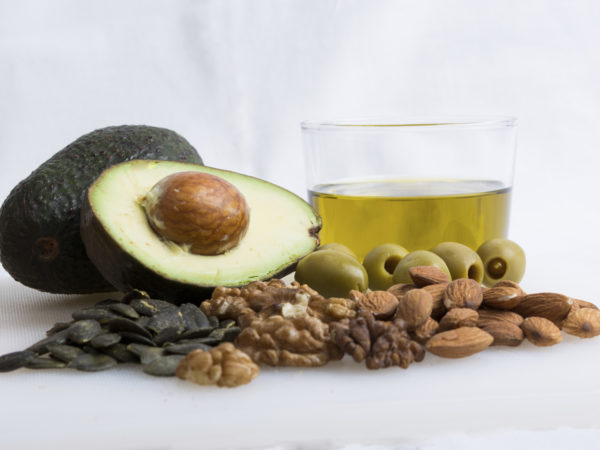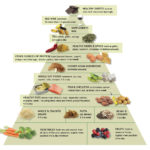The Science Of Anti-Inflammatory Nutrition

As a reader of DrWeil.com, you know that what you eat is as important as how much you eat, but did you ever wonder why? Find out which nutritional components are essential to the anti-inflammatory diet, and why.
Food Information
How Do I Balance My Diet?
A balanced diet should include the right mix of carbohydrates, fats and proteins to meet the body’s nutritional needs, and the right number of calories to replace those lost in everyday life. Here’s the recommended breakdown: 50-60 percent of calories from carbohydrates, 30% from fat, 10-20 percent from protein (preferably soy or fish). Buy organic whenever possible. A healthy diet not only provides the body’s nutritional needs, but also prevents inappropriate inflammation, a factor that may contribute to chronic diseases including cardiovascular and Alzheimer’s disease and many forms of cancer.
What’s So Great About Green Tea?
The polyphenols in green tea help protect the body from cancer by destroying free radicals, and protect your heart by lowering cholesterol and improving lipid metabolism. If you’re a coffee drinker, you’ll do your body good by switching to green tea.
What Comprises the Anti-Inflammatory Diet?
The anti-inflammatory diet centers around variety, freshness, unprocessed foods and an abundance of fruits and vegetables. Buy organic whenever possible.
Supplement Information
Why Should I Take Multivitamins?
Taking a daily multivitamin and mineral supplement ensures that you get the energy you need to drive metabolism. In addition, if you’re not eating regularly, if your diet is not rich in fresh foods, and if you don’t get plenty of fruits and vegetables, a multivitamin may help you fill in the gaps.
How Can Antioxidants Help Me?
Phytochemicals that protect against cancer and premature aging. Good sources include the red and purple pigments in berries, cherries, red grapes and red cabbage; the carotenoid pigments in yellow and orange fruits and vegetables; in green tea; and in dark, leafy greens. Take a daily antioxidant to ensure that you get the protection you need.
What Effect Does Fiber Have On My Body?
A daily intake of fiber is needed for proper intestinal function. Fiber fills you up, regulates blood sugar and can help reduce cholesterol levels. Good sources are fruits, vegetables, whole grains, seeds and nuts.
Glycemic Index & Fats
What is the Glycemic Index?
The glycemic index is a guide to foods that cause increases in insulin production and conversion of calories to fat. You can consume up to 40 percent of your daily calories as carbohydrate if you stick to foods that rank “low” to “moderate” on the glycemic index, such as carrots, lentils, wild rice and air-popped popcorn.
What are Trans-fats?
Trans-fats are natural fat molecules created in the hydrogenation process. They are mostly found in animal fats and vegetable oils. TFAs (trans-fatty acids) are just as bad if not worse for the heart and arteries than saturated fats. They increase total cholesterol, raise LDL (low-density lipoprotein) cholesterol (“bad”) and lower HDL (high-density lipoprotein) cholesterol (“good”). Beyond that, TFAs may have adverse effects on cell membranes and the immune system, and may promote cancer and aging.
How Can I Recognize “Good” Fats?
Sources of “good fat” include almonds, cashews and omega-3 fats, found in fatty cold-water fish, fortified eggs, soy foods, flax, hemp seeds and walnuts. Extra-virgin olive oil, expeller-pressed canola oil, as well as flaxseed, walnut and hempseed oil are all good choices.
What are “Bad” Fats?
Sources of “bad fat” include animal fat and processed vegetable oils (trans-fats). These are often found in processed foods. Avoid: coconut oil, corn oil, cottonseed oil, anything hydrogenated or partially hydrogenated, lard, margarine, palm or palm kernel oil, safflower, sunflower or soybean oil, vegetable oil and vegetable shortening.












